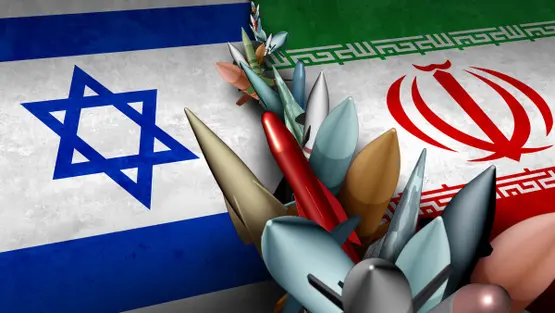U.S. President Donald Trump has issued a chilling ultimatum to Iran: return to nuclear negotiations or face devastation. The warning came hours after Israel launched one of its most aggressive military strikes in years, hitting over 100 Iranian targets, including critical nuclear facilities.

Posting on Truth Social, Trump wrote:
“There has already been great death and destruction, but there is still time to make this slaughter… come to an end.”
Tehran has responded with fury, calling Israel’s overnight assault a “declaration of war”, and has pulled out of the next scheduled round of U.S.-Iran nuclear talks. It has already begun retaliating, launching 100 drones at Israeli targets.
What It Is
This is a significant escalation in tensions between Iran, Israel, and the U.S., reigniting fears of a broader Middle East conflict. Key updates include:
-
Israel’s ‘Operation Rising Lion’: Involving 200 warplanes, the IDF claims to have struck Iran’s main uranium enrichment facility at Natanz and assassinated several military leaders.
-
Trump’s Warning: He blamed Iran’s delay in negotiations for the military action and claimed to have had prior knowledge of the operation.
-
Iran’s Retaliation: Launching drone attacks and halting participation in nuclear talks, Tehran vowed its response will be “harsh and decisive.”
Quick link: Iran Fails Nuclear Watchdog’s Test for First Time in 20 Years
So What? Insights
-
Nuclear Diplomacy Is on Life Support: Iran pulling out of talks dims hopes for reviving the 2015 nuclear deal, already weakened after Trump withdrew the U.S. in 2018. Now, any diplomatic resolution is at risk of total collapse.
-
Israel’s Red Line Has Been Crossed: Israeli officials say Iran was alarmingly close to assembling key components of a nuclear bomb, including uranium enrichment to 60%, radiation testing, and neutron source development. These developments triggered the strikes.
-
Trump’s Shadow Influence: Although no longer in office, Trump’s messaging and foreknowledge of the operation show his continued role in U.S. foreign policy narratives, especially as the U.S. gears up for another election cycle.
-
Russia condemned Israel’s attack as “particularly cynical,” especially with nuclear talks approaching.
-
The UK and EU urged restraint, while also distancing themselves from any potential military involvement.
-
The UN Security Council may now face pressure to intervene, especially with Iran alleging that UN personnel were endangered.
Key Implications
-
Middle East Stability: We are likely to see increased volatility in the region, with more strikes, drone warfare, and possibly cyberattacks.
-
Global Markets: Oil prices and investor confidence may react sharply as the risk of war rises.
-
US Foreign Policy Dilemma: The Biden administration now faces the dual challenge of calming tensions while maintaining distance from unilateral Israeli actions that could draw Washington into another regional conflict.
Practical Takeaways
-
For Businesses: Expect potential supply chain disruptions, especially if oil routes or shipping lanes near the Strait of Hormuz are impacted.
-
For Diplomats & Policy Analysts: Track further reactions from Russia and China, both have strategic interests in Iran and could complicate any multilateral response.
-
For Citizens: Travel advisories are likely to be updated; individuals in the region should monitor government alerts closely.
Final Thoughts
Trump’s rhetoric marks a return to hardline posturing on Iran, but now amid real-world military escalation and global nuclear uncertainty. With Iran retaliating, Israel on high alert, and diplomacy derailed, the road ahead looks dangerously unstable.
The world is watching and holding its breath.
Stay Ahead Effortlessly with SoWhat?
Want to stay informed without endless scrolling? SoWhat? is your AI-powered insights assistant, delivering concise, personalised reports on world events straight to your inbox—every 24 hours.
Stay sharp. Stay informed. Get your free daily report HERE.












